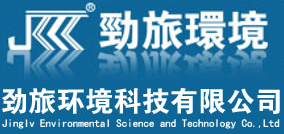- Written by: Thomas Weise
Currently, two of the leading industry nations, Germany and China, are pushing their industry to increase a higher degree of automation. Automation is among the key technologies of concepts such as Industry 4.0 and Made in China 2025 [中国制造2025]. The goal is not automation in the traditional sense, i.e., the fixed and rigid implementation of static processes which are to be repeated millions of times in exactly the same way. Instead, decisions should be automated, i.e., the machinery carrying out processes in production and logistics should dynamically decide what to do based on its environment and its current situation. In other words, these machines should become intelligent.
As a researcher in optimization and operations research, this idea is not new to me. Actually, this is exactly the goal of work and it has been the goal for the past seven decades – with one major difference: the level at which the automated, intelligent decision process takes place. In this article I want to shortly discuss my point of view on this matter.
Read more: Intelligent Production and Logistics: The Viewpoint of Optimization
- Written by: Thomas Weise
The Institute of Applied Optimization welcomes Mrs. Bing Zhou [周冰], who today has joined us as administrative secretary [行政秘书]. She has previously studied English here at the Hefei University [合肥学院]. She took part very successfully in English language competitions and has gained experience via several voluntary activities. She will not just support us as translator and secretary, but also actively contribute to the administration and management of this institute.
We are looking forward to working together.

- Written by: Thomas Weise
Today, my colleagues Professors Rudolf, Xu, Wang, Zhang, and I visited the Hefei Jinglv Environment Equipment Co., Ltd [合肥劲旅环境科技有限公司], a company developing and producing high-quality environmental equipment, such as garbage trucks and garbage containers of all sizes. In the three-hour plus meeting, several novel technologies and ideas were discussed. I was very impressed not just by the modern production facilities of the company, but also by its focus on innovation and new product ideas.
Read more: Visit at Hefei Jinglv Environment Equipment Co., Ltd [合肥劲旅环境科技有限公司]

- Written by: Thomas Weise
Recently, I had the chance to attend the "Chinesisch-Deutsches Symposium zur Ausbildung praxisorientierter Fachkräfte in Intelligenter Produktion" [智能制造应用型人才培养中德论坛], which roughly translates to Chinese-German Symposium on the Education of Practice-Oriented Professionals for Intelligent Production. This symposium took place on March 1st and 2nd, 2017, at the Shanghai Dianji University [上海电机学院] in Shanghai, China. The focus of the symposium was to discuss the requirements imposed by the trend towards a higher degree of automation in the productive industry fueled by concepts such as Industry 4.0 and Made in China 2025 [中国制造2025]. Although I could only attend the first day of this nice meeting, I think I learned a few interesting things on the topics Intelligent Production and Education. Here you can find the (Chinese) press release about our uni's delegation to this meeting.
Read more: Education of Practice-Oriented Professionals for Intelligent Production
- Written by: Thomas Weise
In an Inductive Program Synthesis (IPS) problem, a set of input/output data examples are given and the task is to find a program which can produce the desired outputs for the given inputs. Recently, researchers from the University of Cambridge and Microsoft Research have submitted a paper to the 5th International Conference on Learning Representations (ICLR'17) on DeepCoder, a new approach to IPS, i.e., to the automatic synthesis of programs. This new technology has goals similar to our work on program synthesis, but achieves them with entirely different means.
Read more: Algorithm Synthesis: Deep Learning and Genetic Programming
- New Beta Release of our optimizationBenchmarking.org Software for Automating Research in Optimization
- Measuring the Runtime of (Optimization) Algorithms
- Welcome to Russian Exchange Student Ms. Vorontsova
- Are Black-Box Global Search Methods, such as Metaheuristics like Evolutionary Algorithms, better than Local Search?
